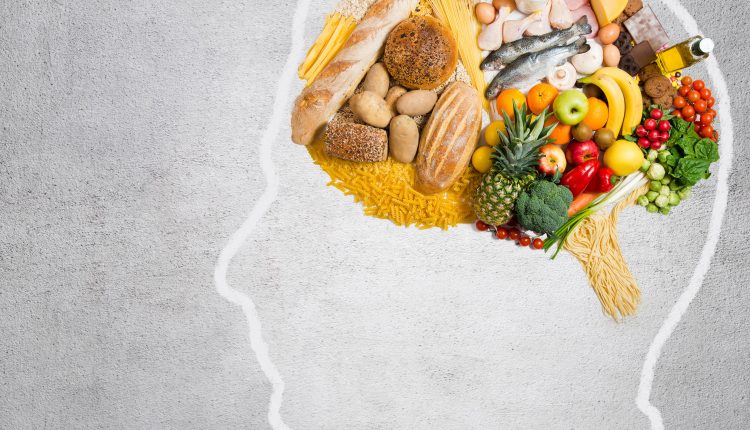
People live longer and healthier thanks to public health and healthcare improvements. However, the other side of these improvements is the increased number of people living with chronic diseases like dementia. In this regard, diet and nutrition play a vital role in maintaining health and well-being. Although eating and having a proper diet is part of everyday life, its importance is still neglected in dementia and disease. In this regard, this article tries to clarify the link between nutrition and the quality of life of people living with dementia and the effectiveness of nutritional supplements in fighting dementia.
Contents
The Role of Undernutrition in Dementia Incidence
Undernutrition and underweight are common among older adults. Weight loss is directly related to increased morbidity and mortality. For instance, being underweight can lower the immune system in older adults.
In addition, people with dementia show progressive malnutrition due to an imbalance between nutrient energy intake and needs. Some evidence suggests that dementia-related brain atrophy may influence specific brain regions responsible for appetite control and energy balance. Most importantly, these highlighted the effect of having a proper diet and supplements for elderlies to have a healthier life and prevent dementia and other cognitive diseases.

The Role of Obesity in Dementia Incidence
Obesity links to dementia through different mechanisms:
- Hyperinsulinemia: adiposity can lead to insulin resistance and increase the blood sugar level (hyperinsulinemia). Excessive insulin can directly affect the brain. For example, it may interfere with the clearance of amyloid and involves brain damage.
- Advanced glycosylation end products (AGEs): AGEs are compounds that are excessively produced in diabetes and are responsible for end-organ damage. These compounds are found in the amyloid plaques and fibrillar tangles. The glycation of amyloid increases their aggregation into insoluble plaques, which are seen in Alzheimer’s disease. Consequently, this may eventually lead to neural damage.
- Adipokines and cytokines: adipose tissue produces inflammatory cytokines that act as a diffuse endocrine organ (these compounds can increase the inflammatory state of the brain). Moreover, Adipokines can directly affect brain regions (like the hippocampus) that involve dementia and cognitive function.
- Vascular risk factor: obesity is related to vascular risk factors, including low physical activity, poor diet, and high blood pressure. These risk factors are associated with dementia.
- Cerebrovascular diseases: obesity can enhance dementia risk through cerebrovascular disease and stroke.
Micronutrient Supplements to Fight Dementia
Many people look for supplements to prevent dementia. However, it’s best to do your research before choosing. Some of the essential supplements people can use to prevent dementia are as follows:
B Vitamins to Prevent Dementia
B vitamins are names of a group of vitamins, including B1, B2, B3, B5, B6, B7, B9, and B12. Indeed, these vitamins are essential for cell metabolism. However, these vitamin groups can’t be synthesized in sufficient amounts in the body; thereby, we should acquire them through diet.
Some evidence, for instance, shows that B6, B9, and B12 have protective effects on cognitive aging.
Vitamin B12 deficiency increases with aging. It has been said that vitamin B12 or folate deficiency in the human body leads to increased homocysteine levels, consequently increasing the risk of cardiovascular disease. Moreover, cardiovascular disease may contribute to amyloid and tau protein accumulation and, thereby, neural cell death. Researches show that vitamin B12 supplements can consistently reduce homocysteine levels in the body.
| Vitamins | Mechanism of action | Food sources | Guideline* intake for men | Guideline* intake for women |
| B6 (Pyridoxine) | · Synthesis of hemoglobin, neurotransmitters, and production of B3
· Metabolism of lipids and amino acids |
Bread
Eggs Fish Milk peanut potatoes Pork Poultry Soybeans vegetables |
1.7 mg/day | 1.5 mg/day |
| B9 (folate) | Production of red blood cells
Amino acids and nucleic acids metabolism Normal cell division during pregnancy |
Asparagus
Broccoli Brown rice Brussels sprouts Chickpeas Liver Pease spinach |
0.4 mg/day | 0.4 mg/day |
| B12 (cobalamin) | Production of red blood cells (with folic acid)
Production of nerve sheath Carbohydrates, lipids, and proteins metabolism
|
Cheese
Cod Eggs Meat Milk salmon |
0.0024 mg/day | 0.0024 mg/day |
* Guideline intake is for adults aged 50 or higher.

Antioxidant
One of the critical mechanisms of developing dementia is neural inflammation and oxidative damage. Oxidative stress, which leads to oxidative damage, can directly destroy cell components. Moreover, destroying neuron synapses and causes nerve cell death.
On the other hand, scientists found that antioxidants can act against neurodegeneration by hindering the production of toxic substances and reducing damage by free radicals. Nutrients with antioxidant activity include vitamins C and E and bioactive compounds like flavonoids. However, lab results confirmed the effectiveness of these bioactive compounds against oxidative stress and free radicals. There is also a lack of clinical trials expressly limited to people with low vitamin E/C or flavonoids.
| Antioxidants | Role in the human body | Food sources | Guideline intake for men | Guideline intake for women |
| Vitamin E (tocopherols and tocotrienols) | antioxidant activity
gene expression cell signalling enzymatic activity neuroglial functions |
nuts
seeds plant oils (including corn, olive, and soya oil) wheat germ |
15 mg/day | 15 mg/day |
| Ascorbic Acid
(Vitamin C) |
antioxidant
maintenance of connective tissue protect cells wound healing |
blackcurrants
broccoli Brussel sprouts orange red and green peppers potatoes strawberries |
90 mg/day | 75 mg/day |
| Flavonoids (including flavanones, flavanonols, flavones, anthocyanidins, and anthoxanthins) | antioxidant
support vitamin C functions control inflammation antibiotic properties |
dark chocolate
dry beans fruit (citrus, grapes, Appels, berries) grains herbs (thyme, parsley, celery, hot peppers) soy foods tea vegetables (broccoli, kale, onions, scallions, wine) |
No current guidelines | No current guidelines |
* Guideline intake is for adults aged 50 or higher.
Minerals to Prevent Dementia
Some minerals play a role in neural gene expression and neural secretion of neurotransmitters. For instance, potassium, calcium, and magnesium protect older adults with dementia.
In addition, selenium is an essential component of an enzyme that involves harmful detoxifying molecules. However, the minerals show their effect when used together rather than in isolation. For example, a patented formula like Souvenaid (that contains uridine monophosphate, choline, omega-3 fatty acids, phospholipids, vitamin C, vitamin E, selenium, vitamin B6, vitamin B12, and folic acid) can improve synapse formation and function and capable of increasing memory performance after 12 weeks in people with mild dementia.
Omega3 (PUFA)
Omega 3 fatty supplements are essential for the proper function of the human brain. That is to say, an omega-3-rich diet helps neural growth and influences synapse formation, according to research.
The good news is that omega-3 can be achieved from food resources. For instance, foods rich in PUFAs are oily fish like salmon, mackerel, herring, sardines, fresh tuna, and swordfish. Although the effectiveness of PUFA on dementia is conflicting, it can be said that there is an association between higher fish consumption and lower dementia risk. For this reason, some nutrition experts recommend that people who have a deficiency in these fatty acids increase the amount intake of omega 3 use the relevant supplements.

Mediterranean Diet to Fight Dementia
A Mediterranean diet mainly includes cereals, fruits, fish, legumes, and vegetables.
Due to the effect of the Mediterranean diet on the vascular system, it may be capable of protecting neurons against oxidative stress and limiting pro-inflammatory substances.
Some scientific studies revealed the association between the Mediterranean diet and reduced risk of cardiovascular disease, type 2 diabetes, cancer, and overall mortality. More precisely, this diet may reduce cardiovascular disease by increasing the concentration of plasma neurotrophins, therefore protecting the nervous system. Scientific and epidemiological evidence supports the idea of a positive relationship between adherence to the diet and decreased risk of dementia.
read more: mediterranean diet to prevent dementia
Before altering your diet and taking new supplements, you should consult your healthcare provider.
Final Words
Diet certainly has an undeniable role in human health and well beings. In addition, our food ingredients, directly and indirectly, influence many age-related chronic diseases like dementia. These ingredients can be produced as supplements to enhance older adults’ overall health and cognitive functions. That is to say; these supplements can be successfully used to fight dementia.
Thank you for this informative article about minerals and their potential to prevent dementia. As we age, it’s essential to take proactive steps to protect our cognitive health, and it’s great to know that certain minerals can help. I’d like to know which specific minerals are most effective for this purpose – are there any that stand out as particularly beneficial? Additionally, do you have any recommendations for incorporating these minerals into our diets or supplement regimens? Thank you for any insights you can provide!
It’s great to learn about the different food sources where these minerals can be found, making it easier for us to incorporate them into our diets. Everyone needs to be aware of the lifestyle changes they can make to protect their brain health, and this article is a valuable resource in that effort. Keep up the great work!